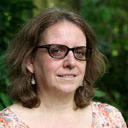
A Strategic Coordination Team for Wetlands Management created by Indonesia’s Ministry of National Planning or National Development Planning Agency (Bappenas) in October aims to streamline the country’s efforts to meet its international Sustainable Development Goals (SDGs) and prioritize low-carbon development.
Among a broad range of duties, the team will be responsible for planning, synchronizing policies, data and information as well as the implementation of monitoring, evaluation and reporting, the government stated in a decree.
Indonesia, the country with the third largest area of peatlands after Canada and Russia, is also home to the most tropical peatlands in the world, which store around 60 billion tons of carbon.
In addition, the archipelago features a vast number of mangroves, which store more than 3 billion tons of carbon — the most found on any continent. Indonesia is part of the Global Peatlands Initiative and is the founding country of the International Tropical Peatlands Center.
Keeping carbon stored is vital for keeping global warming in check and meeting targets under the U.N. Paris Agreement on climate change, according to scientists. The agreement, sealed at climate talks in 2015, stipulates preventing temperatures from rising more than 1.5 to 2 degrees Celsius on average above pre-industrial times.
Under the pact, each country is required to provide data on greenhouse gas emissions and reductions targets it aims to meet post-2020. Indonesia has committed to reduce emissions by 29 to 41 percent by 2030 through its Nationally Determined Contributions (NDC).
“Already central to international research on wetland ecosystems and developing strategies to tackle climate change, efforts to renew efficiency by coordinating across government departments and with other stakeholders from the research community is very timely,” said Daniel Murdiyarso, a long-time principal scientist at the Center for International Forestry Research (CIFOR) and a leading wetlands expert.
As part of the multi-stakeholder policy synchronization working group on the new team, he will collaborate on data and information retrieval and management, alongside representatives from Conservation International Indonesia and Wetlands International Indonesia in addition to Indonesia’s Peat Restoration Agency, Ministry of Environment and Forestry, Ministry of Agriculture, National Disaster Management Agency, the Ministry of Marine Affairs and Fisheries and others.
Conservation International, CIFOR, and Wetlands International Indonesia are currently implementing a joint project titled “Mitigation, Adaptation through Conservation and Sustainable Livelihoods on Indonesia’s Peat and Mangrove Ecosystems,” as part of the International Climate Initiative (IKI), supported by Germany’s Federal Ministry for the Environment, Nature Conservation and Nuclear Safety (BMU).
Conservation International coordinates the project to support national, provincial, and district governments to conserve and manage peatland and mangrove ecosystems, with pilot sites located in the provinces of North Sumatra and West Papua.
“Indonesia hosts the largest tropical peatland and mangrove ecosystems, which faces tremendous pressures,” Murdiyarso said, adding that it is prescient that the team was formed on the eve of the launch of the U.N. Decade on Ecosystem Restoration 2021-2030, which was created to support the restoration of more than 350 million hectares of degraded and deforested land worldwide.
Of the 17 SDGs established by the United Nations to be achieved by 2030, the new team is tasked with ticking the box on goal 13, which has the broad aim of combating climate change. Other priorities include SDG 14, focused on conservation of oceans, seas and marine resources, and SDG 15, concerned with preservation and restoration of terrestrial ecosystems and biodiversity.
“Given the climate change mitigation and adaptation potential of Indonesia’s wetlands, we can only applaud the initiative and be proud to be part of it,” said Robert Nasi, Director General of CIFOR.
As high carbon storage ecosystems, peatland and mangrove ecosystems have a strategic role as nature-based solutions for climate mitigation and adaptation. Respectively, peatlands and mangroves store up to two to 10 times more than carbon forests.
Ketut Sarjana Putra, vice president of Conservation International Indonesia also applauds the progress made by the government of Indonesia and says he is thrilled to support the country as it builds effective strategies for protecting and managing high carbon ecosystems, peatlands and mangroves. “It is part of the nature-based solution approach to achieving the SDGs,” he said.
The Strategic Coordination Team will develop a wetlands management strategy and roadmap in Indonesia to support low-carbon development and the SDGs, said Arifin Rudiyanto, deputy Minister of Maritime Affairs and Natural Resources at Bappenas, adding that it will be followed by coordination and policy synchronization with subnational governments and multi-stakeholders to achieve sustainable management of peat and mangrove ecosystems.
“The team will assist the implementation of strategy and a roadmap featuring monitoring and reporting mechanisms to support the SDGs and low-carbon development in Indonesia,” he said.
The Strategic Coordination Team was created by the Ministry of National Planning Agency (Bappenas) of the government of Indonesia in October 2020, under Minister Decree No. 89/M.PPN/HK/10/2020.
We want you to share Forests News content, which is licensed under Creative Commons Attribution-NonCommercial-ShareAlike 4.0 International (CC BY-NC-SA 4.0). This means you are free to redistribute our material for non-commercial purposes. All we ask is that you give Forests News appropriate credit and link to the original Forests News content, indicate if changes were made, and distribute your contributions under the same Creative Commons license. You must notify Forests News if you repost, reprint or reuse our materials by contacting forestsnews@cifor-icraf.org.












